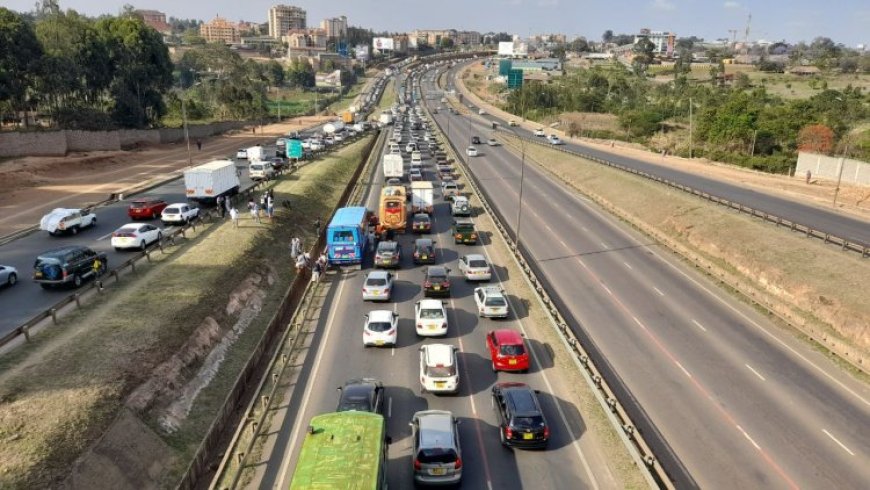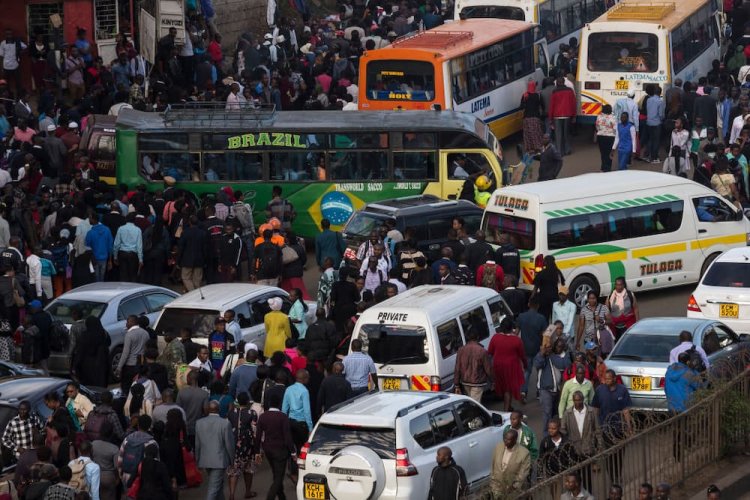Govt Bags Ksh8.4 Billion Deal For Technology Aimed At Ending Traffic Jams
The deal will see the government construct a modern traffic management system in Nairobi that will seek to end traffic congestion that has been a menace in the city.

On Wednesday, November 27, Transport Cabinet Secretary (CS) Davis Chirchir announced that the Kenya Urban Roads Authority (KURA) and South Korean company, Samsung C&T signed a deal for the implementation of Nairobi's Intelligent Transport System (ITS).
The deal will see the government construct a modern traffic management system in Nairobi that will seek to end traffic congestion that has been a menace in the city.
"This afternoon, I witnessed the signing of a contract between KURA and Samsung C&T for Phase 1 of Nairobi's Intelligent Transport System (ITS) and the Traffic Management Centre (TMC)," he announced in part.

Transport Cabinet Secretary Davis Chirchir and KURA officials during the signing of the first phase of the Nairobi Transport Intelligence System on Wednesday, November 27, 2024, in Nairobi. /DAVIS CHIRCHIR
The phase will involve the geometric improvement of 25 junctions in the capital city. The project, in the deal set to be worth Ksh8.4 billion, involves detailed design and upgrades to the junction configurations to ensure they can adequately handle traffic demand.
According to Chirchir, this comprehensive upgrade will greatly improve traffic flow and safety in Nairobi city.
"Additionally, various ITS field equipment will be installed, including traffic signals, signal controllers, CCTV cameras, above-ground detectors, Variable Message Signs (VMS), Vehicle Enforcement Systems (VES), and Vehicle Detection Systems (VDS)," he added.
Some of the junctions being targeted in the plan include Moi Avenue-Kenyatta Avenue, Koinange-Kenyatta Avenue and Mbagathi Way-Langata Road.
The CS announced that the construction of the Traffic Management Centre at Cabanas, Mombasa Road is set to start in March 2025.
The deal follows a Cabinet resolution in February this year that permitted KURA to announce a bidding process for developers.
''To address traffic congestion in Nairobi and align with international best practices in city management, Cabinet approved the implementation of the Nairobi Intelligent Transport System (ITS) Establishment and Junction Improvement Project,” read part of the Cabinet dispatch.
This is as the government continues to explore more ways of managing the traffic menace in the Nairobi Metropolitan area.
Despite improvements to the city's road network as well as the construction of larger highways to handle high volumes of vehicular traffic, traffic in Nairobi is made worse by the sheer number of cars on the road, which has grown exponentially since ride-sharing apps entered the Kenyan market.
With close to 15 per cent of Nairobi’s population spending an average of four hours in traffic to commute to work, the gridlock is unsustainable.







